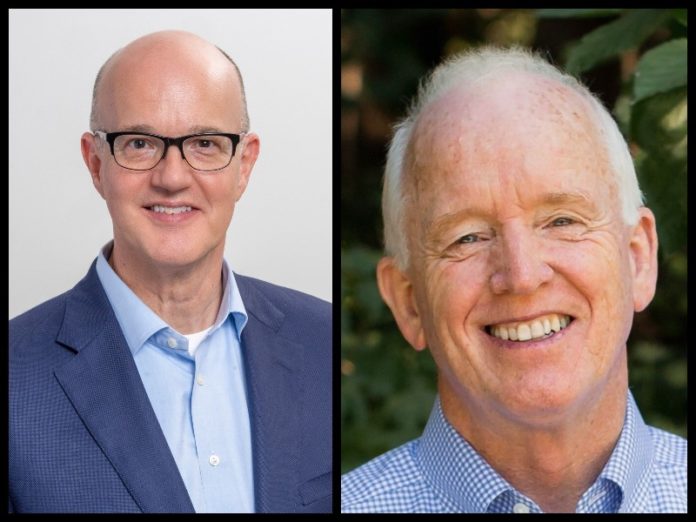
John M. McLaughlin, Ph.D., Chair, and Mark K. Claypool, CEO, are the founders of Galileo Education, Inc., the parent company of Galileo Preparatory Academy, which will open this January in Franklin.
Just when we thought we were in the clear, the long arm of COVID-19 has dragged us back into confusion and chaos as schools are back in session. Rising COVID cases have already caused at least 1,000 school districts across the U.S. to temporarily shut down within the first month of the school year. COVID’s negative impact on learning rages on. But, if there is anything the pandemic has taught us, it is that schools should not return to “normal.” Clamoring for school as it was wastes the teachable moment that COVID-19 forced on an unwitting nation. Changes that would have taken decades at a pre-COVID pace are now possible at some fraction of before.
Take technology as an example. In his forward-looking, Year in Review – 2021, Michael Moe, the founder of Global Silicon Valley, said COVID-19 will double the speed of digital learning development. Before COVID-19 (BC), the digital learning industry was projected to reach $1 trillion by 2034; and now, After Disease (AD), it is anticipated to hit that milestone in 2027.
The pandemic also raised fundamental questions about the structure of schools that left millions of parents scratching their heads. Parents noticed that their children could get through an entire remote school-day of work in two hours, that lengthy bus rides weren’t needed for learning, and that less school made for more creativity. They also noticed that, if their children were learning remotely, then location is irrelevant. Whether it’s worksheets and workbooks or online and asynchronous, being at home, being at Grandma’s, or being at a VRBO doesn’t matter.
The speed of change created by the pandemic brings into question other long-held facets of schooling, like the agrarian calendar, the factory model, and seat time requirement, not to mention the size of student bodies and the lack of family control. Why, if I can work at home, if the four-day work week is gaining popularity, and if my company shuts down for two weeks in February, am I held captive by my child’s school schedule? Why does warming a chair for 175 days equal advancement in school? Why doesn’t demonstrating knowledge of material equal advancement? And why is my child in a school so big that anonymity is accepted?
Today, nearly every child goes to his grandparents’ school, and that is true whether it is public, private, or parochial. We don’t want to receive the medical treatment or the technology of our grandparents’ childhood; yet we allow our children to receive their grandparents’ education. Schooling is too important to be the way it has always been.
Going forward, we will have, as Michael Moe suggests, BC – Before COVID and AD – After Disease as our benchmarks for measuring our education systems’ success. And it won’t be the existing education establishment that drives needed changes. It will be innovators that bring the possible to the private school market, wrap it in a reimagined, family-friendly, student-focused package, accredit it with the highest standards, and begin to change how people think about all K–12 schooling.
While another academic year got off to a challenging start, the prospect of school being different, better, even glorious seems a far-off dream. But reimagined education is not only possible, it’s real.















